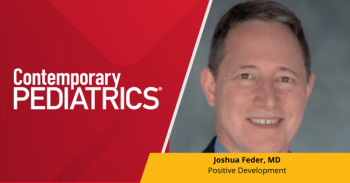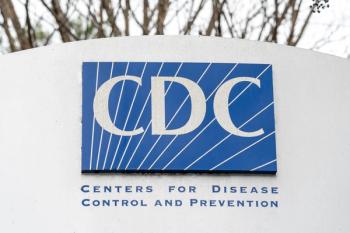
Children referred to CPS often have caregivers with untreated mental illness, substance use disorders
Medicaid registry data show parents and guardians whose children have been referred to CPS are more than 3-fold likely to have a substance use disorder.
Approximately 3 in every 5 parents or guardians with Medicaid whose children were referred to child protective services (CPS) had a
A new analysis from a team of Washington, DC-based investigators showed the likelihood of a caregiver having a mental illness or substance use disorder diagnosis was nearly doubled when they had a child referred to CPS. The concerning trend in data calls to attention the need for more diligence from clinicians, Medicaid and child welfare agencies for risk of caregivers needing behavioral health services.
Led by Tami L. Mark, PhD, MBA, from the nonprofit Research Triangle Institute (RTI), investigators sought to assess the rate of caregivers with psychiatric or substance use disorders whose children were referred to CPS—and whether such affected parents or guardians received treatment for their condition via Medicaid. In 2021 alone, there were nearly 4 million referrals to CPS alleging maltreatment of approximately 7.2 million children; more than 200,000 such children were removed from their home in response.
Exacerbating the trend is evidence that CPS involvement is associated with increased risk of mental health events in affected children.2
Mark and colleagues noted that Congressional and state government-level strategies are aiming to prevent childhood maltreatment and neglect without having to separate children from their families; preventive programs have as such identified caregiver mental health and substance use disorders as key risk factors, among other factors like housing, food and employment insecurity.1
“The federal government is also encouraging greater coordination between child welfare and other social service programs, such as Medicaid,” investigators wrote. “Medicaid covers 36% of all children in the US, 16% of all women aged 18 to 64 years, and most families with incomes below the poverty line. Medicaid benefits include a range of evidence-based mental health and substance use disorder therapies that have been shown to improve parental mental health, substance use disorders and parenting skills, and in turn, positively affect children’s outcomes.”
The team used data from the novel Child and Caregiver Outcomes Using Linked Data (CCOULD) registry to assess receipt of mental health and substance use disorder treatment funded by Medicaid to caregivers with relevant conditions who have been involved with CPS. The registry includes child welfare records linked through Medicaid enrollment and claims data in Kentucky and Florida from dates ranging from January 2017 – June 2021.
In their analysis, Mark and colleagues identified 58,551 caregivers in the CCOULD registry with children involved in child welfare. About two-thirds (65%) were aged 26 – 40 years old and female (69%). Patients were primarily identified as White (78%), followed by Black / African American (20%).
The team observed a significantly higher rate of mental health and substance use disorders among Medicaid-enrolled caregivers with children referred to CPS than their age- and sex-matched peers without children referred to such services. The prevalence of mental health diagnoses was approximately 60% greater among CPS-involved caregivers (45% vs 28%), while each of substance use disorder (42% vs 12%), opioid use disorder (30% vs 8%) and alcohol use disorder (18% vs 5%) were more than 3 times prevalent among CPS-involved caregivers.
Investigators additionally noted that a majority of caregivers with risk-associated diagnoses did not receive relevant care through Medicaid. Only 44% of caregivers with an opioid use disorder received counseling; the rates were even worse for patients with a mental health (38%) or substance use disorder (40%) diagnosis. Only a majority of patients with opioid use disorder (52%) or mental health (67%) diagnosis received a relevant medication for their condition.
Mark and colleagues wrote their analysis revealed a large, unmet need for counseling and medication to treat mental health and substance use disorders among caregivers with children involved in CPS—a gap in care that which, if bettered, could help toward strategies of prevent separation of affected children from their families.
“An important step in closing this gap is greater coordination between child welfare and Medicaid agencies, such as through integrating child welfare and Medicaid data systems so that child welfare can ensure that caregivers are receiving Medicaid services as needed,” they wrote. “Furthermore, interventions are needed to address the barriers that caregivers face in obtaining mental health / substance use disorder treatment, such as stigma, inconvenience, financial hardship, and fear of losing parental rights.”
References
- Mark TL, Dolan M, Allaire B, et al. Untreated Psychiatric and Substance Use Disorders Among Caregivers With Children Reported to Child Protective Services. JAMA Health Forum. 2024;5(4):e240637. doi:10.1001/jamahealthforum.2024.0637
- Hester M. Being in child protective services impacts mental health. Contemporary Pediatrics. Published August 16, 2019. https://www.contemporarypediatrics.com/view/being-child-protective-services-impacts-mental-health
Newsletter
Access practical, evidence-based guidance to support better care for our youngest patients. Join our email list for the latest clinical updates.






